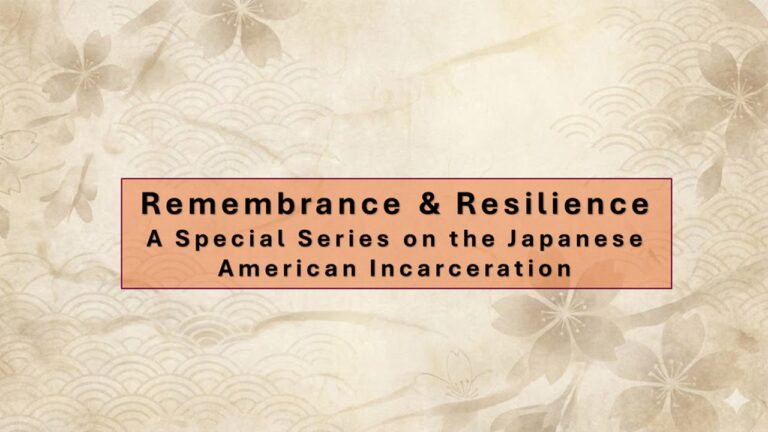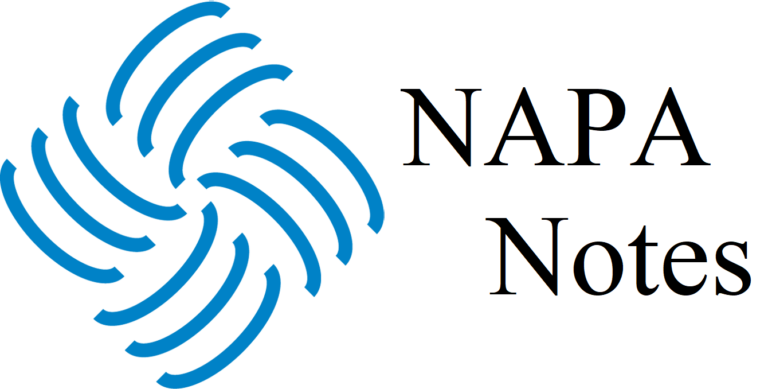National Association for the Practice of Anthropology
sNAPAshots: Nazia Hussain

This work is licensed under a Creative Commons Attribution-NonCommercial-ShareAlike 4.0 International License.
0:13
[NAPA Logo]
Interviewer 0:13
Welcome to sNAPAshots, conversations with practicing professional and applied anthropologist. Let’s meet our next practice anthropologist. Nazia Hussain.
Nazia Hassain 0:21
I am Nazia Hussain, my pronouns are she hers. I am a South Asian woman with brown skin, dark black hair and wearing glasses. Currently, I am a Project researcher focused on human centered design with the Centers for Medicaid for the federal government.
Interviewer 0:40
How did you get interested in anthropology?
Nazia Hassain 0:43
In my undergrad. When I first entered college, I didn’t really know what anthropology was. But when I learned about it, I decided I wanted to major in it. And so I studied physical anthropology in my undergrad, and then medical anthropology in my graduate training. And one of the reasons I decided to sort of get into anthropology or continue on with it rather, was before that I was on a pretty traditional trajectory to go to medical school. But then I wanted to set myself apart. And that’s why I decided to major in something that wasn’t chemistry or biology. But then, really, it was my final year of school, after I had taken the MCAT. And after I was already starting to apply to medical schools, that I realized I wanted to study healthcare, and not medicine. And that’s when I felt like continuing on the anthropology route was the right thing for me.
Interviewer 1:37
How has the anthropological perspective or training enhanced your contribution to your workplace?
Nazia Hassain 1:42
I’ve worked in a lot of different industries and areas, from population health, to community engagement, and most recently in public health, but in the digital civic tech space. But for me, the running thread across these areas has been the way I approach a problem. You know, I think the quote, anthropological mindset isn’t just one thing. It’s the use of certain skills and critical inquiry, but also the less tangible parts of inquiry, like relationships, or building trust and rapport. And for me honing in on that latter half has been a major factor and component of how I’ve been successful in these various workplaces, especially when working with non anthropologists or those that are in the social sciences.
Interviewer 2:34
What types of industry challenges do you get to help solve with this anthropological lens?
Nazia Hassain 2:40
Because most of my research, focus has been around things like engagement and implementation of programs and policies. For me, it’s always been about the end user, you know, how do we solve for, or improve, or radically dismantle something that’s not working right now, for a specific group of people? And so I think those are some of those wicked challenges that I love to sort of tackle. And always think about, who is this impacting at the end of the day?
Interviewer 3:12
What anthropological skills to use in your field?
Nazia Hassain 3:15
I do use interviewing a lot, surveying those types of things. But I’d say really, the ways in which I approached problems with ensuring sustainability or longevity, you know, it’s not necessarily a hard skill or tangible skills, that we think about it in those terms, but it’s very valuable. It’s tremendously valuable, I’d say, especially when working in many different projects, spaces or industries. You know, sometimes anthropologists aren’t wholly welcomed in certain communities because of a history of coming into an area disrupting things and then leaving. So I always aim to think about the long term is this community saying x or y? You know, the thing that we’re implementing or changing is this useful for them. And so thinking about longevity and sustainability, I think is a skill that I always bring to my workspace.
Interviewer 4:14
Do you recall a moment that changed the way you practice anthropology?
Nazia Hassain 4:19
I did have a major shift in the way I researched and the way I approach work, when I was in the policy world. That’s when I felt like I had to radically change not just the way I practice anthropology, but how I think about impact. And so I was working in a space where I saw firsthand the impacts of legislative policy on some of the communities that were part of the current project at the time. And it was then I was able to move from the approach that I was using before which was question, answer, and resolve into one that was more about creating paradigm shifts and organizational or cultural changes.
Interviewer 5:05
What is one thing about the practice of anthropology that nobody told you about as a student?
Nazia Hassain 5:10
It’s more than just interviewing. It’s more than just questions and finding solutions. I learned that research practice includes things like creating a budget, talking to stakeholders, pitching oneself, you know, telling people what the value of my approach and the, you know, anthropological methods are. And then the fact that I’ll never work with another anthropologist ever again, maybe one or two at most, but it’s about working interdisciplinarily and speaking to different types of people from different types of backgrounds and skill sets. But making sure you know, you’re coming to together to solve some sort of problem. And I feel like I never really learned that as a student.
Interviewer 5:57
What would you like to pass on to future anthropologists seeking roles in professional fields?
Nazia Hassain 6:04
It’s important to explore, especially if you’re going to envision yourself being more of a practicing anthropologist, outside of academia. I think it’s also understanding how you want to practice your discipline, what impacts you want to make, anthropology can look like a lot of different things, depending on your context. And I think it’s important to understand that anthropology doesn’t have to look like the way you read about it in school, or in the manuscripts and the works, that you sort of absorb in the classroom. And so knowing that, I think is going to make it that much more valuable when you’re sort of seeking a new role or learning how to position yourself in a certain space.
Interviewer 6:53
How did anthropology show up in your early life?
Nazia Hassain 6:57
I think a lot of the experiences I had growing up, I reflect on today, I’ve worked with a lot of different immigrant communities, and being an immigrant myself, and having all the experiences I did with, you know, accessing or engaging with public services, which is a big part of my research, focus. Just keeping those in mind and thinking about those from time to time I feel helps me in my work, no matter the project that I’m on, influences my work in ways where I can be more self reflexive and understand. You know, things like being more empathetic, but then also knowing, you know, what my position is. And so, I think it’s a little bit challenging to, you know, sometimes think back to your childhood, but I’d say the common theme is just like, the experiences I had, I see that in a lot of the communities that I work with, and so that just strengthens my ability to be critical and, and learn from.
Interviewer 8:01
Thank you, Nazia, for sharing your experience as a practicing medical anthropologist. For more snapshots, find us at practicing anthropology.org Mehta, LinkedIn and Twitter. Join Napa at the careers expo on November 10 2023, in Toronto, Canada. We look forward to seeing you there.
Credits 8:24
PRODUCED BY
Niel Tashima
Cathleen Crain
Joshua Liggett
DIRECTED BY
Reshama Damle
Suanna Crowley
MUSIC BY
by Baradeen “Emotional”
CREATIVE LEAD
Mikaela Williams
Anya Maeve
Juana Lozano
Many Thanks
to NAPA’s
Governing Council
for supporting
sNAPAshots
Conversations with
Practicing,
Professional,
and Applied
Anthropologists
NAPA is a
section of the
American
Anthropological
Association
Join us in person
at the Careers Expo
in Toronto, CA
November 10
2023!
NAPA is seeking
volunteers to join the
sNAPAshots project.
We’d love to hear
from YOU!
Contact us at:
ntashima@
ltgassociates.com
Nazia Hassain 8:24
[Outtakes] This is great, I think. I love that Napa is doing this. I love that the students are involved with the interviews and I feel like I’m sure you’re learning a lot talking to people and so I love this. This is fantastic
8:38
[NAPA Logo]
Interviewer 8:40
sNAPAshots
Transcribed by https://otter.ai



![[NAPA Logo] sNAPAshots: Conversations with Professional, Practicing, and Applied Anthropologists. Rosalie Post, Design Anthropologist, Co-founder of NAMLA. PracticingAnthropology.org Bluesky, X, Meta, LinkedIn, and Youtube Logos](https://practicinganthropology.org/wp-content/uploads/Rosalie-Post-LinkedIn-Flyer-768x768.jpg)